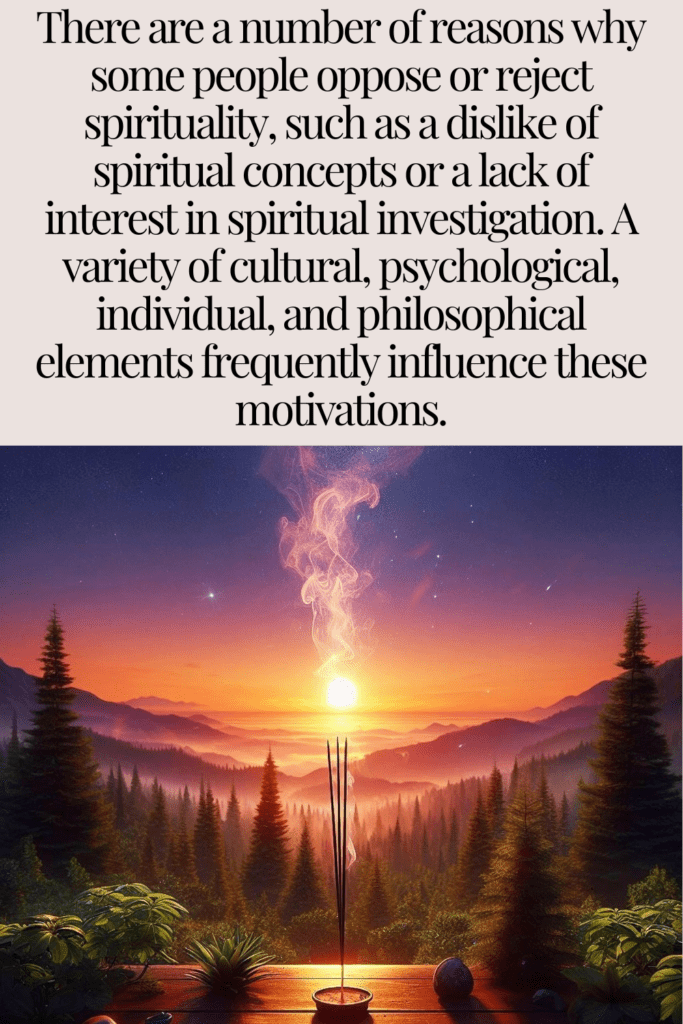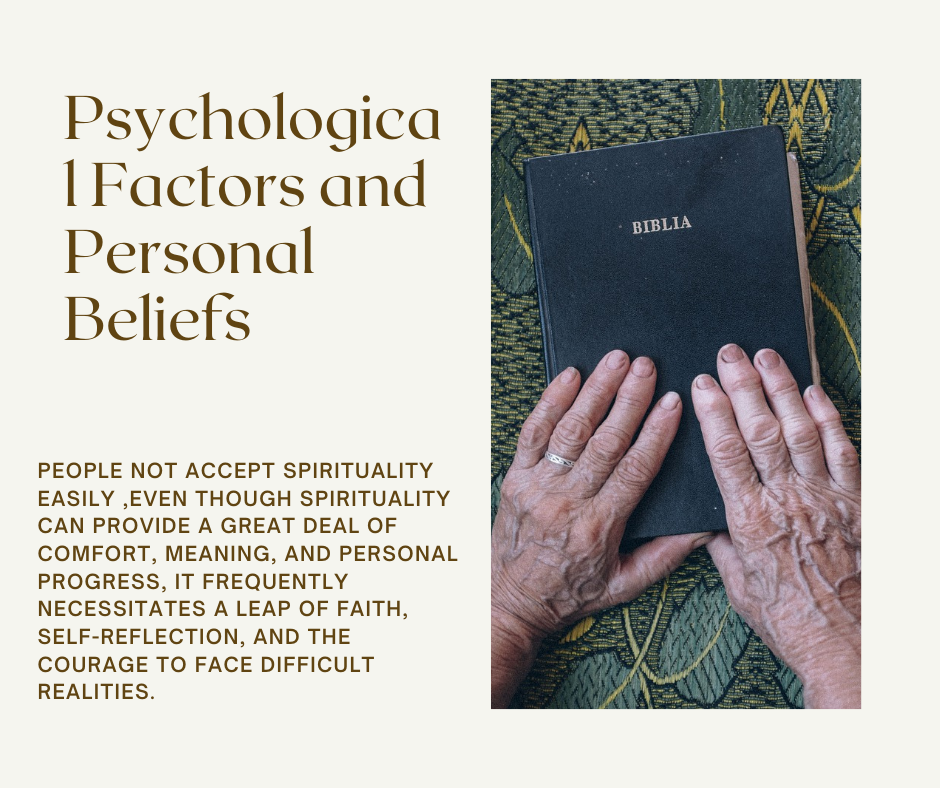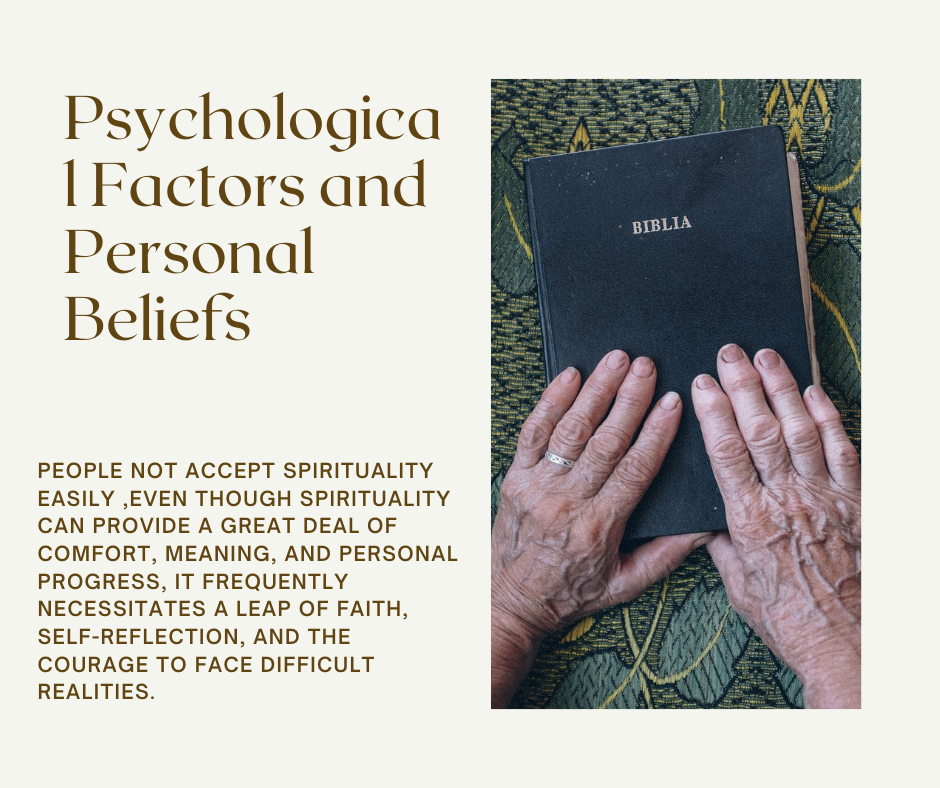For the years, People Stop Believing in Religion but religion has played a vital role in human history and society by providing direction, a sense of belonging, and answers to the big questions of life. But there has been a discernible trend in recent decades: a growing number of people are abandoning traditional religious views.

The reasons why people cease to believe in a certain religion are complicated since they differ from person to person and are influenced by society norms, personal experiences, and introspection. While some people experience a dramatic move away from religion, others may do so gradually. The most frequent causes of religious disbelief, which range from individual experiences to more general cultural shifts, are listed below.
Table of Contents
it’s hard to believe from my own experience
Loss of faith, which is frequently brought on by painful or personal situations, is one of the main causes of people ceasing to believe in religion. People may begin to doubt the existence of a kind and all-powerful god as a result of life’s tragedies, including the death of a loved one, personal suffering, natural calamities, or even violent acts.
Many people may believe that the existence of a loving and compassionate God is irreconcilable with the suffering that they or others go through in this world.
People Stop Believing in Religion because , A person who loses a kid, for example, could find it difficult to reconcile the idea of a merciful God with the terrible reality of such a loss. The notion that God is actively concerned in human affairs can also demoralize people who encounter personal injustice or adversity. Such people may start to completely abandon their belief in a higher power if they are unable to find comfort in religion or if religious solutions seem inadequate to their suffering.
People may also become disillusioned if they believe that religious leaders or institutions have betrayed them. People may start to doubt the legitimacy of religious organizations in general as well as the particular religion they practice as a result of scandals involving corruption, abuse, or hypocrisy within religious communities.

Intellectual Doubt and Scientific Advancements
Another important factor in the decline of religious belief is intellectual skepticism. People may begin to question or reject religious ideas that appear to be at odds with scientific understanding as they get more involved in science, philosophy, and critical thinking.
For instance, ideas like the Earth’s age, evolution theory, or the beginnings of the universe may not be consistent with religious doctrine in some cultures. This conflict between religion and science can lead to skepticism and, in some cases, the ultimate rejection of religious convictions.
Many people People Stop Believing in Religion but now days people are reevaluating the basis of their religious beliefs as a result of the growth of secularism, which promotes critical thinking and challenging conventional wisdom. People may discover that religion is devoid of empirical support or that religious doctrine is less compelling when analyzed through a scientific lens as they are exposed to different points of view.
People may come to believe that religious explanations of the world are unneeded or out of date as a result of growing understanding in fields like physics, biology, and cosmology. Many people may no longer feel the need to uphold religious beliefs in order to explain scientific events as a result, particularly those who live in more secularized nations.
The Influence of Secularism and Modernity
Religion no longer has as much influence over politics, culture, or daily life in contemporary, secular societies. There is less need to adhere to conventional religious conventions when people from other cultures and belief systems come into greater contact thanks to globalization and contemporary communication technologies. People Stop Believing in Religion Secular societies encourage people to value reason, logic, and individual autonomy over religious doctrine and expose them to a variety of worldviews.
Many contemporary countries have made secularism—the belief that public life and governance should be kept apart from religious institutions—a pillar. The public’s move away from religion has affected people’s personal belief systems. Since secular values and scientific discoveries offer substitute sources of meaning and guidance, people in more secular nations could believe that religion is less important or relevant for navigating modern life.
Furthermore, religious teachings that may impose stringent regulations or behavioral restrictions frequently conflict with contemporary lifestyles that place a high value on human freedom, autonomy, and personal choice. Many people may reject the limitations imposed by religion theory and give up traditional religious rituals in communities that place a high importance on self-expression and personal
Negative Experiences with Religious Institutions
Another reason people cease believing in religion is unfavorable experiences with religious institutions or religious leaders. Although they give many people a feeling of belonging and community, religious organizations can also be used as tools for control, abuse, and manipulation. People may lose faith in the religious organizations that once guided them as a result of scandals including financial mismanagement, clergy sexual abuse, and incidents of intolerance or discrimination.
For example, numerous incidents of exploitation by televangelists or extensive sexual abuse scandals inside the Catholic Church have made many people reconsider their involvement with these groups. Disillusionment and eventual religious faith desertion can result from religious leaders’ hypocrisy, particularly when their own behavior goes against the very doctrines they promote.
In certain instances, members of a religious community may have suffered psychological or emotional injury. People Stop Believing in Religion and People may have experienced oppression or shame in some conservative or fundamentalist communities because of their personal identities, beliefs, or lifestyle choices. People may finally quit the faith in search of a more accepting and satisfying path as a result of the emotional strain caused by the need to live up to strict religious demands.
Cultural and Social Pressure
Religious practices and beliefs are greatly influenced by social and cultural factors. People’s religious identities are frequently passed down from their families and communities, but as societies change and diversify, people may feel more and more pressure to defy the religious standards they were raised with.
This is particularly prevalent in areas where the gap between more liberal or secular groups and traditional religious communities is widening.
Some people may decide to give up their religion due to peer pressure, social movements, or the desire to blend in with a different environment or viewpoint. Young adults who attend universities in cosmopolitan or more secular areas, for instance, could come to new concepts, viewpoints, and ways of living that contradict the religious principles they were raised with that why People Stop Believing in Religion
People may start to doubt their early faith and eventually give it up because they want to fit in with their peers or in a more liberal or progressive social setting.
Personal Freedom and Autonomy
People may discover that religion limits their capacity to make their own decisions when they strive for personal independence and autonomy in their lives. Moral and social norms imposed by traditional religion teachings may restrict a person’s ability to think, act, or live in particular ways.
People who yearn for autonomy and self-determination may see religion as a barrier to leading a happy life in accordance with their own principles and preferences. People Stop Believing in Religion but why Younger generations have a particularly strong yearning for personal freedom and may be more likely to challenge authority figures and defy social expectations. These people may decide to give up their faith in favor of secularism or more adaptable spiritual practices because they believe that religious beliefs limit their ability to grow personally or to be unique.
Spirituality Without Religion
People who reject traditional religious organizations and doctrine but yet believe in a higher force, the divine, or a purpose in life are increasingly identifying as spiritual but not religious (SBNR). Particularly in Western nations, where many believe they can have a direct, personal relationship with the divine or a higher awareness without having to follow a particular theological framework, this approach has gained traction.
Many people in this group look for spiritual fulfillment by practicing mindfulness, meditation, or investigating different worldviews and philosophies that align with their own experiences. They might still hold onto ideas like compassion, generosity, and love, but they would rather look for spiritual truths outside of the established religious system.
The rejection of institutionalized religion in favor of a more personal, individualized approach to spirituality is another reason why people cease believing in traditional religious systems.
Conclusion:
A Complex and Personal Journey
People abandon their religion for a variety of personal reasons that are influenced by social, cultural, emotional, and intellectual elements. People Stop Believing in Religion ,The decision to give up religious belief is frequently a complicated and dynamic process, regardless of the reasons behind it, including bad encounters with religious organizations, skepticism, personal tragedies, or the desire for more autonomy.
People are more inclined to investigate a variety of worldviews in a world that is becoming more secular and diverse, and for some, this investigation causes them to doubt or reject conventional religious beliefs.
